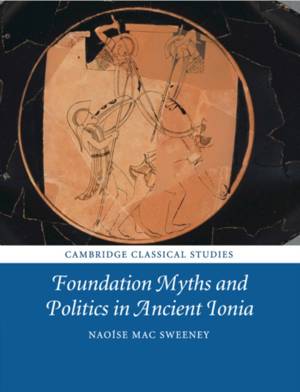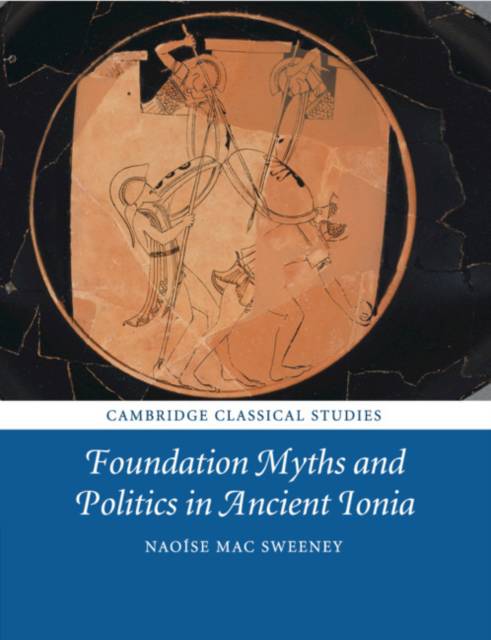
Door een staking bij bpost kan je online bestelling op dit moment iets langer onderweg zijn dan voorzien. Dringend iets nodig? Onze winkels ontvangen jou met open armen!
- Afhalen na 1 uur in een winkel met voorraad
- Gratis thuislevering in België vanaf € 30
- Ruim aanbod met 7 miljoen producten
Door een staking bij bpost kan je online bestelling op dit moment iets langer onderweg zijn dan voorzien. Dringend iets nodig? Onze winkels ontvangen jou met open armen!
- Afhalen na 1 uur in een winkel met voorraad
- Gratis thuislevering in België vanaf € 30
- Ruim aanbod met 7 miljoen producten
Zoeken
Omschrijving
This book examines foundation myths told about the Ionian cities during the archaic and classical periods. It uses these myths to explore the complex and changing ways in which civic identity was constructed in Ionia, relating this to the wider discourses about ethnicity and cultural difference that were current in the Greek world at this time. The Ionian cities seem to have rejected oppositional models of cultural difference which set in contrast East and West, Europe and Asia, Greek and Barbarian, opting instead for a more fluid and nuanced perspective on ethnic and cultural distinctions. The conclusions of this book have far-reaching implications for our understanding of Ionia, but also challenge current models of Greek ethnicity and identity, suggesting that there was a more diverse conception of Greekness in antiquity than has often been assumed.
Specificaties
Betrokkenen
- Auteur(s):
- Uitgeverij:
Inhoud
- Aantal bladzijden:
- 253
- Taal:
- Engels
- Reeks:
Eigenschappen
- Productcode (EAN):
- 9781108729963
- Verschijningsdatum:
- 24/01/2019
- Uitvoering:
- Paperback
- Formaat:
- Trade paperback (VS)
- Afmetingen:
- 189 mm x 246 mm
- Gewicht:
- 458 g

Alleen bij Standaard Boekhandel
+ 121 punten op je klantenkaart van Standaard Boekhandel
Beoordelingen
We publiceren alleen reviews die voldoen aan de voorwaarden voor reviews. Bekijk onze voorwaarden voor reviews.











